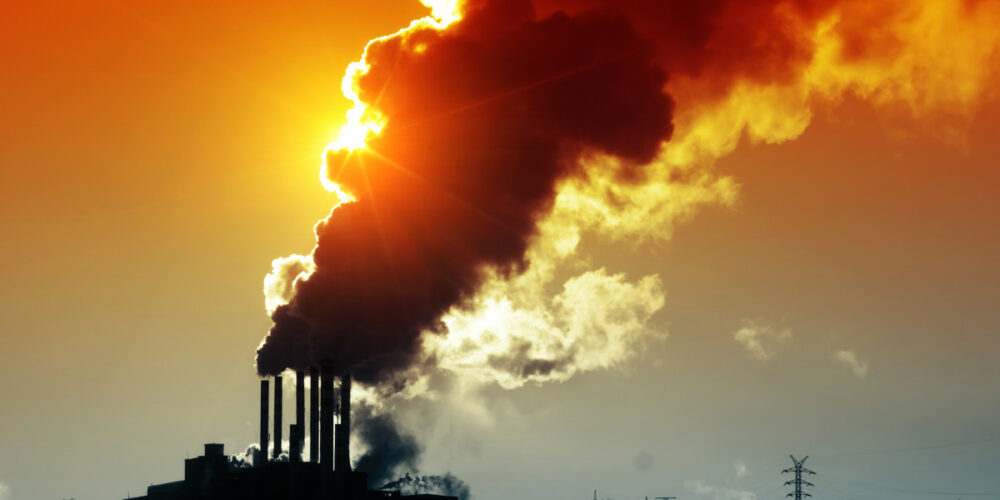T. S. Elliott wrote in “Choruses from ‘The Rock’” (1934):
Where is the wisdom we have lost in knowledge?
Where is the knowledge we have lost in information?
We have all the knowledge and information about climate change, but the capitalist system doesn’t allow us to act with wisdom. As a result we are now amid the sixth mass extinction, and this time a particular species is responsible for it: Homo sapiens.
Capitalism is synonymous with the mindless exploitation of nature and labour for the accumulation of capital. The American economist Kenneth Boulding once said, “Anyone who believes that exponential growth can go on for ever in a finite world is either a madman or an economist.”
So if the question is, Can capitalism give us a solution to the environmental crisis? then the answer is easy. No, capitalism cannot find the solution; in fact capitalism is the problem.
There are nine aspects to “planet boundary”—climate change, ocean acidification, ozone depletion, nitrogen and phosphorus cycle, global fresh water use, change in land use, biodiversity loss, aerosol loading, and chemical pollution—which are explained by John Bellamy Foster and Fred Magdoff in their book What Every Environmentalist Needs to Know about Capitalism.
But oil barons, such as the Koch brothers, spend millions to create doubts about global warming. The parliaments and senates are filled with an elite who don’t want discussion on climate change on their agenda. It’s an irony that our civilisation, which cannot protect life on this planet, is looking for life elsewhere.
Technology is fighting hard to find solutions, such as reducing global warming by capturing and injecting carbon dioxide into the oceans (which will cause acidification of the oceans) or reflecting light back, using sulphur dioxide in the stratosphere (which will cause acid rains) by the albedo effect. But the “Jevons paradox” explains that technology alone cannot solve the environmental contradictions of capitalism.
So, can capitalism “go green”? In 1999 the CEO of British Petroleum, John Browne, coined the slogan “Beyond petroleum.” But the neoliberal economist Milton Friedman minced no words to say that “he can do it with his own money . . . He is an employee of stockholders, however elevated his position may appear to be. As such, he has a very strong moral responsibility to them.” In other words, profit first, not the environment.
The Guardian (London) says, “Climate change catastrophe can be averted by greening consumer behaviour rather than by curbing economic growth and mass consumerism.” The strategies of environmentalists that begin with the aim of protecting the environment end in protecting capitalism.
So the struggle to protect the planet has to undergo a metamorphosis to a direct fight against capitalism. If we are not contemplating ending capitalism we are contemplating ending life on Earth. Even when climate change was not a big issue, the Soviet Union passed a decree on environmental policy for the conservation of nature. It was Vladimir Vernadsky in 1929 who coined the term “biosphere.”
The anthropologist Jason Hickel says that Cuba leads in the sustainable development index (SDI), which is a ratio between the human development index (HDI) and “ecological offshoot.” That is a carbon footprint per capita exceeding the earth’s natural limits; which means that Cuba develops without hurting the environment.
The United States, which imports from low-wage countries such as China, India and Bangladesh by offshoring production, has a carbon footprint per capita of 27 tonnes. To maintain its imperialist hegemony it has eight hundred military bases around the world and the military logistics that add to the carbon emissions and increase in military budgets that could otherwise be used for the people’s welfare and investment in environmental protection.
The insane economic expansion of rich countries has to slow down to give room for the economic growth of poorer ones. Is this possible under imperialism?
The force has to come from the bottom of society to transcend the system. Climate change is no longer a peripheral issue: it is a central issue that communists have to take up in the fight against capitalism. Otherwise, as during the covid-19 pandemic, the working class will be the ones worst affected by climate change.
References
John Bellamy Foster and Fred Magdoff, What Every Environmentalist Needs to Know about Capitalism (New York: New York University Press, 2011)
Tatiana R. Zaharchenko, “Environmental policy in the Soviet Union,” Environmental Law and Policy Center, vol. 14 (1990), p. 3–7.






